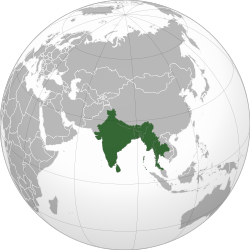 Narendra Modi takes the oath of office as the Prime Minister of India, with President Ram Nath Kovind administering the oath. | |
 | |
| Date | May 30, 2019 |
|---|---|
| Location | Rashtrapati Bhavan, New Delhi, India 28°36′51″N77°11′56″E / 28.6143°N 77.199°E |
| Participants | Prime Minister of India, Narendra Modi Second Modi ministry Assuming office President of India, Ram Nath Kovind Administering oath |

I, (name), do swear in the name of God (or, solemnly affirm) that I will bear true faith and allegiance to the Constitution of India as by law established, that I will uphold the sovereignty and integrity of India, that I will faithfully and conscientiously discharge my duties as a Prime Minister for the Union and that I will do right to all manner of people in accordance with the Constitution and the law, without fear or favour, afection or ill-will.
Contents
I, (name), do swear in the name of God (or, solemnly affirm) that I will not directly or indirectly communicate or reveal to any person or persons any matter which shall be brought under my consideration, or shall become known to me as a Prime Minister for the Union, except as may be required for the due discharge of my duties as Prime Minister.
Narendra Modi, parliamentary leader of the Bharatiya Janata Party, started his tenure after his oath of office as the 16th Prime Minister of India on 30 May 2019. Several other ministers were also sworn in along with Modi. The ceremony was noted by media for being the first ever oath of office of an Indian Prime Minister to have been attended by the heads of all BIMSTEC countries.


